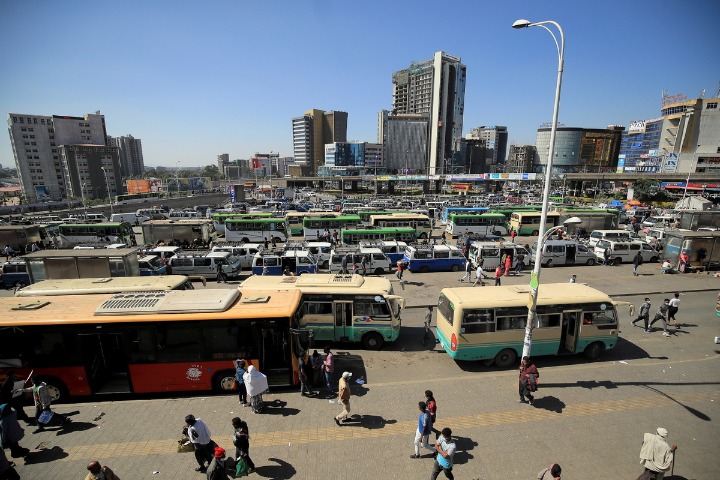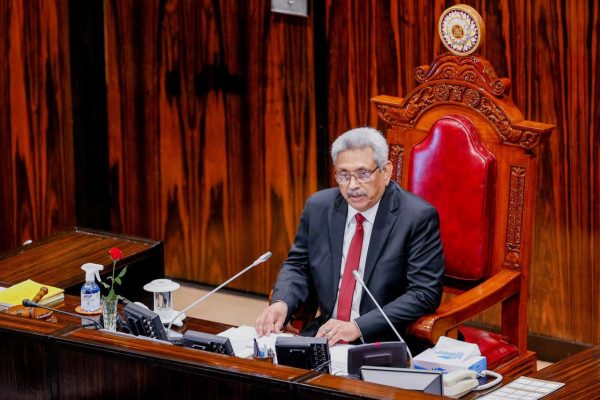The richest countries can afford to stop the global debt crisis, so why won’t they?

Patrick E. Shea, University of Glasgow
Countries around the world are drifting towards a debt crisis. Economic downturns and rising inflation have increased spending demands, making it nearly impossible for many governments to repay the money they owe.
In normal times, these countries could simply take on new debt to replace old debt. But international conditions have made this much more difficult.
As a result, some of those approaching repayment deadlines simply will not be able to meet them. Sri Lanka and Zambia have already missed payments, plunging both countries into economic meltdown and perhaps offering a glimpse of looming global troubles.
One of the main reasons for this worrying scenario is that countries around the world are basically forced to borrow money in US dollars or Euros and keep foreign currency reserves for future debt payments.
But these reserves face other vital demands. They are needed to buy oil and other imports, as well as to maintain the credible value of their national currency.
Unfortunately for many emerging economies, the reserves they hold are simply not enough to cover all these demands, especially after energy prices spiked when Russia invaded Ukraine.
At the same time, foreign currencies have become more expensive to buy because the US Federal Reserve and the European Central Bank are raising interest rates. Sri Lanka would have no more reserves, while Pakistan would operate on a monthly basis.
Countries typically issue new bonds (think of them as negotiable IOUs) to rollover old debt, a process that works great – until it doesn’t. In July 2022, no emerging countries issued new bonds, indicating that investors are alarmed by the risk of low foreign exchange reserves and are no longer interested in lending to them.
China has also cut lending since the start of the pandemic to limit its exposure to global risk. So, without bond markets or China, countries are turning to other sources of credit.
Kenya and Ghana, for example, have recently taken out bank loans to cover budget shortfalls. And while the precise terms of these loans are not known, banks generally demand higher interest rates and shorter repayment periods, which can only add to a country’s financial stress levels.
Other countries are looking to some of the oil-rich Gulf states that are currently benefiting from high energy prices. Egypt and Pakistan received loans from Saudi Arabia, the United Arab Emirates (UAE) and Qatar, while Turkey also borrowed from the UAE. These loans can be welcome lifelines, but they also create opportunities for wealthier countries to effectively buy influence and generate dependency.
Overall, a multitude of factors are working against some of the poorest and most indebted countries in the world. If a global debt crisis ensues, expect political unrest.
Sri Lanka’s default has sparked widespread protests, forcing the president to resign. And research shows that extremist parties do better after a financial crisis.
Liquidity and transparency
But it is not too late for the international community to help avoid such a scenario.
First, the US and EU should slow their interest rate hikes. These rate hikes in the US and EU are slowing economic growth around the world, as the United Nations has warned, and they are depleting countries’ foreign currency reserves.
Nor is it clear that these interest rate hikes solve domestic inflation problems. If wealthier countries want to reduce inflation without triggering a global debt crisis, they should lower trade barriers that artificially raise prices. For example, the United States and the EU levy tariffs on imported agricultural products, which increases the price of food for their consumers.
Second, the International Monetary Fund (IMF) should drop or at least ease austerity requirements tied to its emergency lending. For example, the IMF’s new agreement with Zambia calls for lower government subsidies on fuel and food at a time of rising prices. These policies are politically unpopular and instead encourage countries to seek help from China and oil-rich states.
Countries that are forced to borrow from the IMF run the risk of emboldening extremist political elements. Now is not the time to impose orthodox tax requirements whose effectiveness is questionable. Instead, the IMF should prioritize global liquidity in these difficult economic conditions.
Finally, China should play a leading and transparent role in debt negotiations. Many countries facing debt problems owe China money, a process often shrouded in secrecy.
We know, for example, that China agreed to participate in the restructuring negotiations in Zambia, but did not do the same in Sri Lanka. China has provided emergency loans and debt relief to Pakistan and Argentina, although the effectiveness or extent of this aid is unknown.
A more transparent approach would reduce uncertainty in global markets and allow other creditors to coordinate with China. Although China’s lending has not been transparent so far, greater clarity would benefit Chinese investment abroad as well as the global debt market.
Time is running out before many over-indebted countries face repayment day. Debt problems are contagious, as seen with the Latin American debt crises of the 1980s, the Asian financial crises of the 1990s, and the Eurozone debt crises of the 2010s. world must work together to avoid a new global economic spiral and help millions avoid unnecessary suffering.
Patrick E. Shea, Lecturer in International Relations and Global Governance, University of Glasgow
This article is republished from The Conversation under a Creative Commons license. Read the original article.
Stay up to date with all the information.
Browse the news, 1 email per day.
Subscribe to Qrius





![[Press release] Debt crisis: a failed G20 summit](https://www.cadtm.org/local/cache-vignettes/L710xH373/f0bd231bf33e0619051e008da75a42-274d7.jpg)
